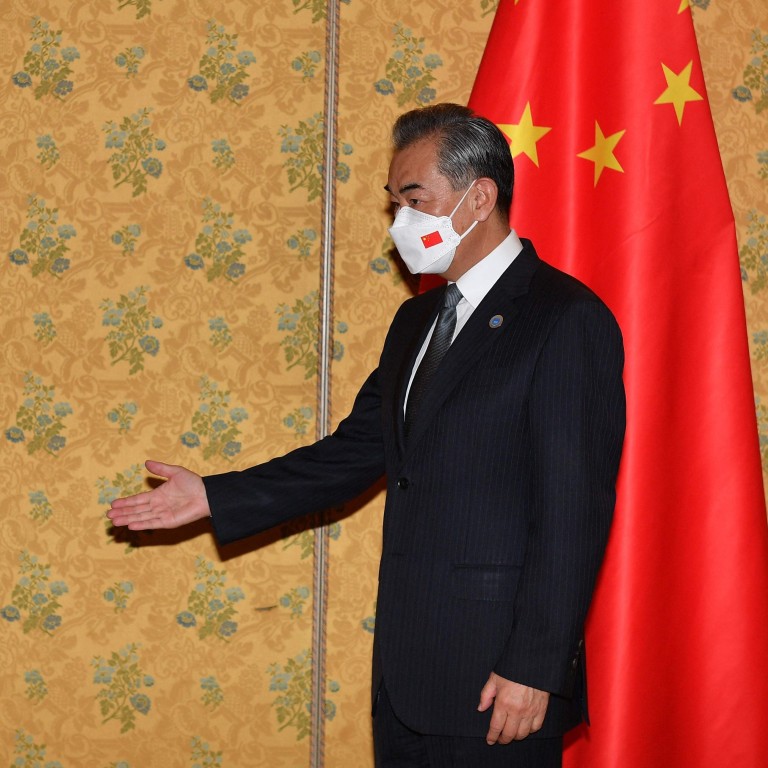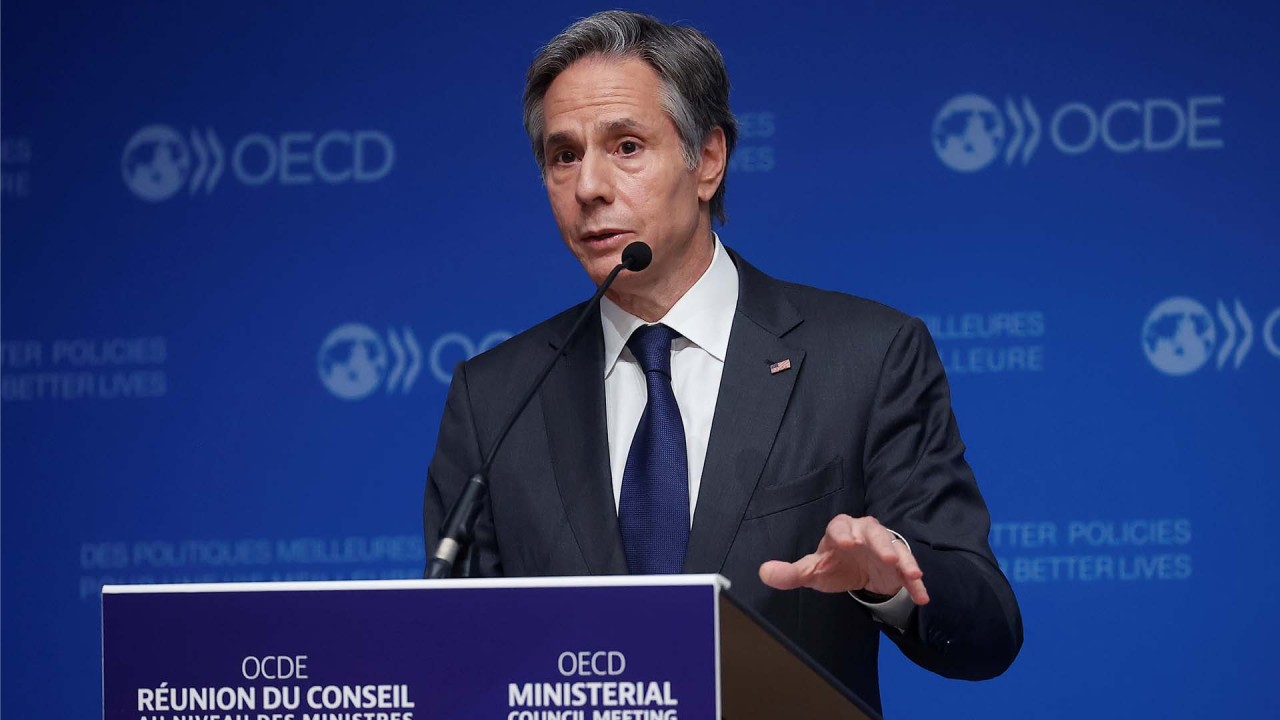
No change to US’ one-China stand on Taiwan, Blinken tells Wang Yi
- On G20 sidelines in Rome, US secretary of state says Washington opposes efforts by Beijing to raise tensions across the Taiwan Strait
- Both sides reaffirm need to keep communication lines open
Blinken made clear that Washington had not changed its one-China policy regarding Taiwan, and both sides acknowledged that open lines of communication were paramount, Reuters quoted a senior State Department official as saying.
Wang, meanwhile, said that Taiwan was the most sensitive issue between the US and China and would damage relations if mishandled. “The crux of the current situation in the Taiwan Strait is that the Taiwan authorities have repeatedly tried to break through the one-China framework, and US connivance and support for ‘Taiwan independence’ forces is also to blame,” he said according to a statement released by the Chinese foreign ministry.
“We require the US to pursue a real one-China policy, not a fake one-China policy; we require the US to fulfil its commitments to China, not act treacherously; we require the US to truly implement the one-China policy through action, rather than saying one thing and doing another.”
The People’s Liberation Army Air force has flown a record 450 sorties across the Taiwan Strait since January, mostly towards the island’s southwest – with 149 flights in the first four days of October, compared with 380 for all of last year.

00:00
Taiwan denounces mainland China for ‘over the top’ flights into island’s air defence zone
Lu Xiang, a research fellow specialising in US studies at the Chinese Academy of Social Sciences, said Blinken’s remarks on Sunday were in line with the “strategic ambiguity” position, where the US opts not to state whether it would take military action if the island came under attack.
“The US appears to be intentionally creating an issue so as to bargain with China, and Taiwan is one of the few cards to play against Beijing,” Lu said, adding that the US may also “use the Taiwan card” when bargaining with Beijing in trade talks.
“The US could be trying to test China’s bottom line, though I think it should stop there instead of going forward before the situation becomes out of control.”
Defence ties with Taiwan ‘rock solid’, says US diplomat amid Beijing anger over troop revelation
Price added that the US and China had areas of common interest and could work together on North Korea, Myanmar, Iran, Afghanistan, and the climate crisis.

A video posted by Yuyuan Tantian, a social media account affiliated with Chinese state broadcaster CCTV, showed Wang and Blinken greeting each other without touching before the meeting. Another video showed the two looking more relaxed at the end of their hour-long talks, chatting and patting each others’ arms as they left.
At that gathering, the two sides agreed to continue to engage at a senior level to help pave the way for a virtual meeting between the Chinese and US presidents before the end of this year.
It was another sign of easing in tensions after four years of tumult in the bilateral relationship.
But confrontations remain, particularly over Taiwan.
Last week, Beijing responded with fury to Blinken’s call for United Nations member states to support the self-ruled island’s efforts to take part in international bodies, a move that Beijing warned could lead to a rift in China-US relations.

01:12
China’s ‘provocative’ activity toward Taiwan ‘risks miscalculation’: US Secretary of State Blinken
Wang also met his French counterpart Jean-Yves Le Drian on Saturday, calling for on dialogue to deal with “grave challenges to international peace and stability”, according to a statement by the Chinese foreign ministry.
“As permanent members of the United Nations Security Council, both China and France should be highly vigilant against those words and actions that create confrontation and provoke a new cold war at the international level, firmly defend multilateralism, resolutely oppose hegemonism, unilateralism and protectionism, and demonstrate the responsibility of a great power,” Wang was quoted as saying.
With France set to take over the rotating presidency of the Council of the European Union in the first half of next year, Wang said cooperation was needed to push forward “healthy and stable” relations between China and Europe.
In response, Le Drian said France abided by the one-China principle and was willing to continue negotiations with China under the UN and G20 mechanisms, according to the Chinese foreign ministry statement.
Additional reporting by Orange Wang

